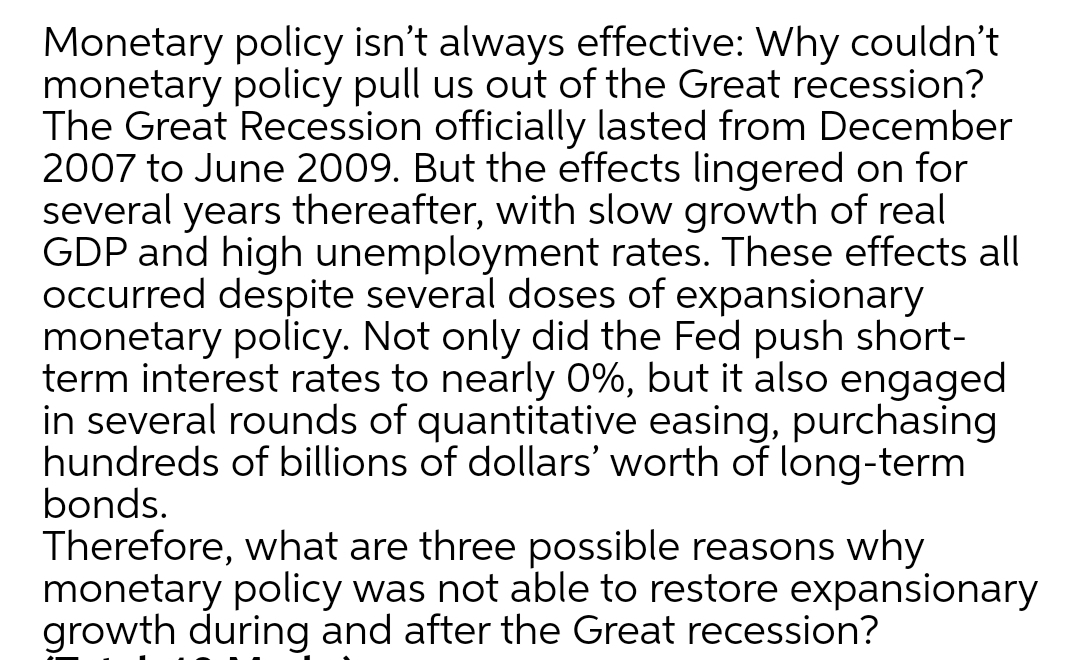Monetary policy isn't always effective: Why couldn't monetary policy pull us out of the Great recession? The Great Recession officially lasted from December 2007 to June 2009. But the effects lingered on for several years thereafter, with slow growth of real GDP and high unemployment rates. These effects all occurred despite several doses of expansionary monetary policy. Not only did the Fed push short- term interest rates to nearly 0%, but it also engaged in several rounds of quantitative easing, purchasing hundreds of billions of dollars' worth of long-term bonds. Therefore, what are three possible reasons why monetary policy was not able to restore expansionary growth during and after the Great recession?
Monetary Policy and Equation of Exchange
The monetary policy has been defined as the policy that is used by the Federal Reserve (the central bank of the US) or the central bank (the central bank of India is RBI) along with the use of the supply of money to accomplish certain macroeconomic policies. Monetary policy is a supply-side macroeconomic policy that supervises the growth rate and money supply in the economy.
Monetary Economics
As from the name, it is very evident that monetary economics deals with the monetary theory of economics. Therefore, we can say that monetary economics, is that part of economics that provides us with the idea or notion of analyzing money as a holding with its function, which acts as the medium of exchange, the store of value through which the buying and selling are done and also the unit of account. It also helps in formulating the framework of the monetary policy of a bank in an economy which ultimately results in the welfare of the people residing in that particular economy. The monetary policy of an economy also helps to analyze and evaluate the financial health of it.

Trending now
This is a popular solution!
Step by step
Solved in 2 steps









